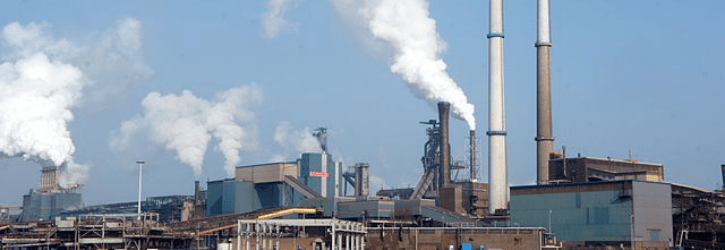Category: Industrial

Legency Remedies Eye Wash Recall
The safety of medical products is paramount, especially when they are meant to address critical health needs. We look at the Legency Remedies eye wash recall.
When products like eye wash solutions are recalled due to safety concerns, individuals who have used them may face unforeseen health risks. If you have suffered as a result of such issues, you may be entitled to compensation.
At The Group Action Lawyers, we specialise in helping individuals navigate the complexities of group action claims arising from product recalls.

Very Little Time to Claim Emissions Compensation: Act Now in Group Emissions Claims
With very little time to claim emissions-related damages, it is crucial to know your rights and take action promptly.
In today’s fast-paced world, time is of the essence, especially when it comes to claiming compensation in group actions for emissions-related issues. At The Group Action Lawyers, we understand the urgency and importance of acting swiftly to ensure you receive the compensation you deserve.
In this comprehensive guide, we delve deeper into the significance of timely action and how our expert team can assist you in maximising your compensation.

Deadlines for Nissan and Renault Emissions Claims: A Guide by The Group Action Lawyers
At The Group Action Lawyers, we specialise in representing individuals impacted by emissions scandals, ensuring they understand the deadlines for Nissan and Renault emissions claims and empowering them to seek the compensation they deserve.
In recent years, emissions scandals have rocked the automotive industry, leading to widespread repercussions for both manufacturers and consumers. Among the companies embroiled in such controversies are Nissan and Renault, where allegations of emissions cheating have sparked group actions seeking compensation for affected consumers.

Johnson & Johnson talc compensation claims in the UK
If you or someone you know has been potentially affected by Johnson and Johnson talc issues then we may be able to pursue a claim for compensation for you now on a No Win, No Fee basis.
Talc products have, for quite some time, been linked to potential asbestos exposure as a result of the close proximity where the two compounds are found. The allegations are that pharmaceutical giant Johnson & Johnson may have allegedly known about cross-contamination, but may have covered up the matter or failed to deal with it. Whilst they firmly dispute the allegations that have been made, some compensation actions have settled in the US on the basis that people may have been exposed to asbestos when using talc products.
You can speak to our team for free, no-obligation legal advice here now.

Contaminated Products and Group Action Compensation
A group action claim for compensation could ensue for issues in respect of contaminated products, and anyone who has come to harm could be eligible to pursue a legal case.
Group Actions and Multi-Party Litigation matters are what we specialise in. Having recovered millions of pounds in damages for clients in civil cases for many years, and with thousands of happy clients having settled their cases, our experience speaks for itself.
We are always happy to assess potential cases for free, and we can also offer No Win, No Fee legal representation for eligible claimants.

The priority of protecting consumers from unsafe products
Protecting consumers from unsafe products must always be seen as an absolute priority in the UK and, indeed, around the world.
This is why we were keen to see the results of a recent parliamentary publication. This publication has highlighted a number of flaws and matters to be addressed to ensure that the public is properly protected from harm. We will take a brief look at the headings in terms of the areas of concern, and give our expert take on things.
In terms of action for justice, we remind people that we can represent victims of harm caused by products on a No Win, No Fee basis.

The Gatwick drone incident raises legal questions
The Gatwick drone incident that has brought one of the UK’s biggest airports to a complete standstill this week raises big legal questions.
We’ve written before about the use of smart technology and how it can be dangerous. Although the Gatwick drones appear to be high-tech and are being used as part of what appears to be a deliberate ploy, everyday drones can be dangerous. It’s those drones that can be easily bought online or on the high street that raise the legal questions as well.
If something happens, where’s the liability? Where’s the insurance? What do we need to do to ensure people are protected?

Kobe Steel admits to falsifying data over its product standards, affecting 500 firms
Japan’s third largest steel maker, Kobe, has revealed that they falsified information about the standards and safety of their steel products.
Kobe supplies steel to major companies across the globe, such as manufacturers of cars, aircrafts, trains and even space rockets.
The scandal has prompted major corporations to double-check their products. Some of Kobe Steel’s consumers and users include: Central Japan Railway; Hitachi (its trains are used in Britain); Mazda Motor Corp; Subaru Corp; Toyota Motor Corp; Mitsubishi Heavy Industries; Honda; General Motors; Daimler; Airbus
Continue Reading…

Steel company fined £1 million over flammable toxic cloud that endangered employees
A number of employees at Tata Steel were reportedly exposed to a toxic gas that could have killed them or at least seriously maimed them if ignited. Two employees found themselves choking on the airborne chemicals and “suffered coughing and breathing difficulties”.
Both were admitted to hospital for treatment.
The Scunthorpe site in question is reportedly registered as a “top tier” Control of Major Accidents Hazards, as the site stored a lot of dangerously toxic and extremely flammable substances. With the serious risk of explosion and harm, Tata Steel were accused of failing to protect their workers.
Continue Reading…